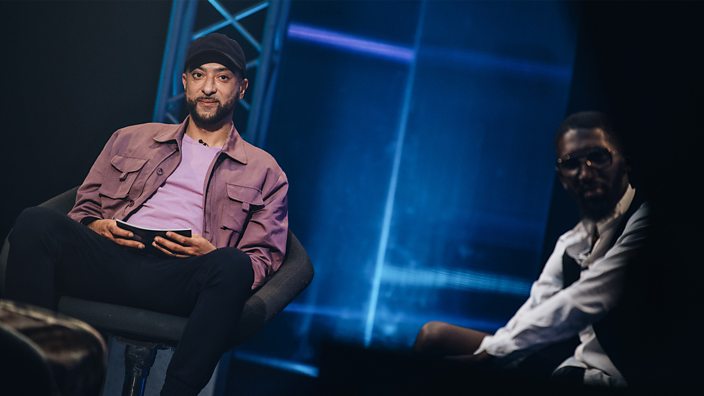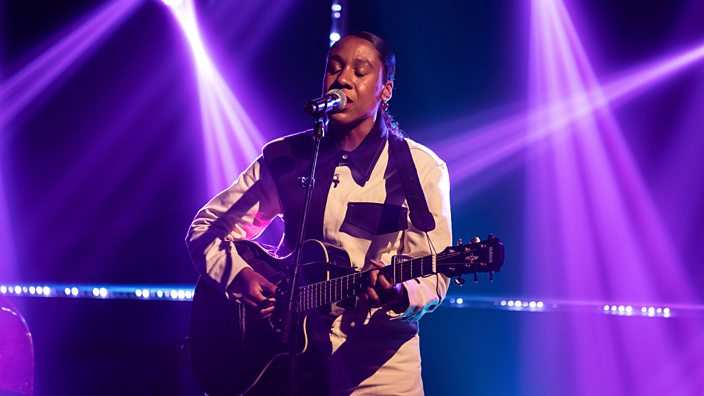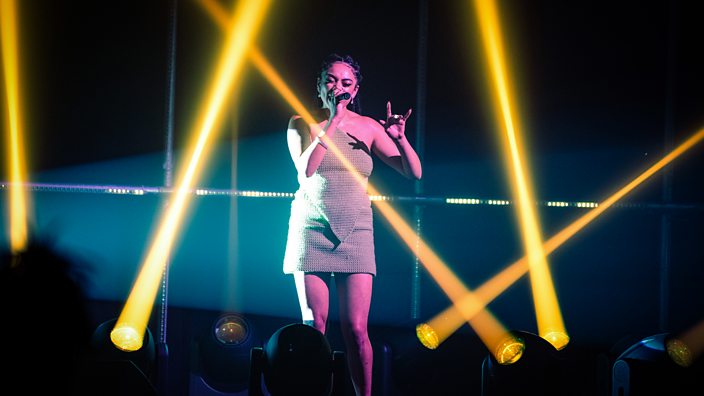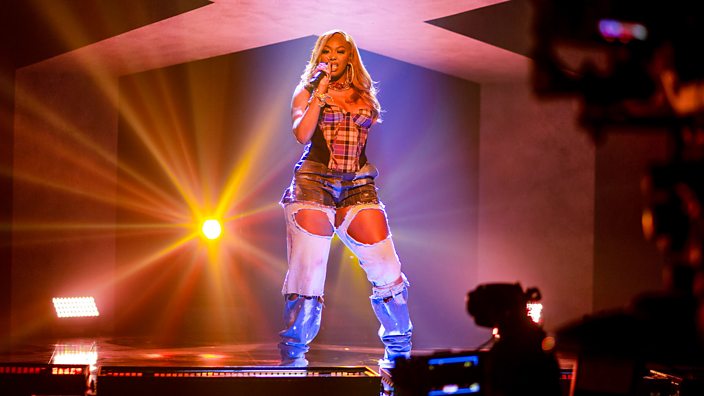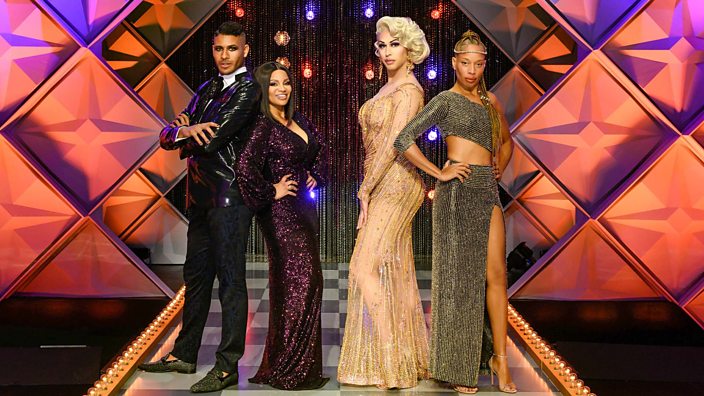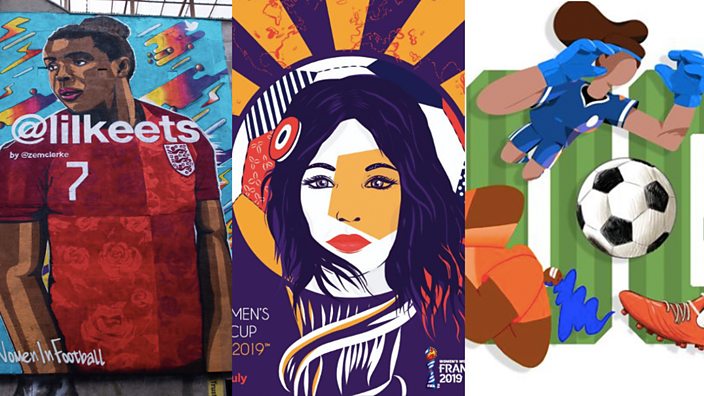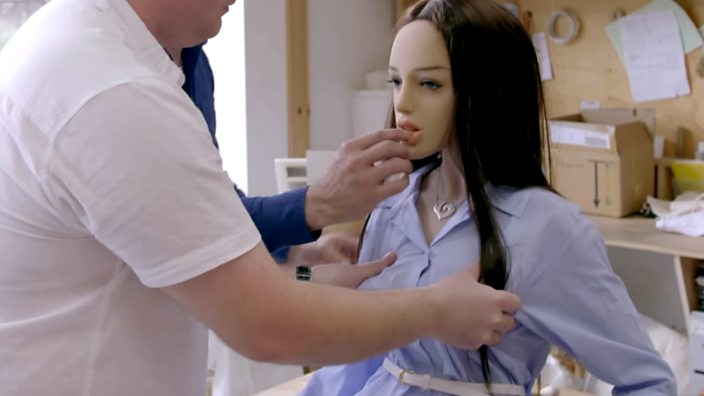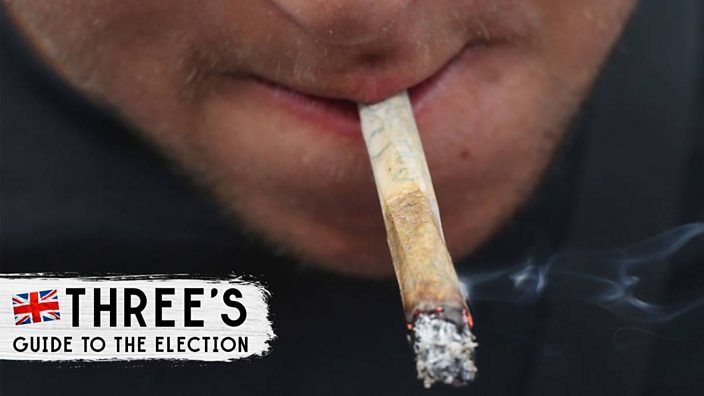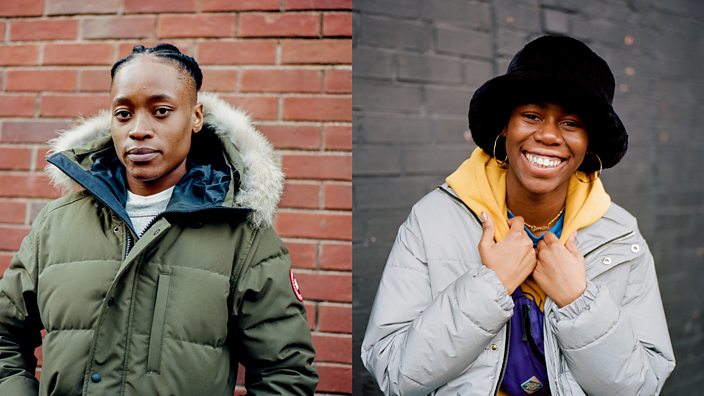 BBC
BBC'I shouldn't have to look sexy to be a good rapper': Meet the women of the Rap Game UK
Two unsigned female MCs join the UK’s rap scene, as The Rap Game returns to BBC Three
Contains spoilers
Last year, a group of upcoming MCs were thrown together in a Birmingham penthouse in a head-to-head battle to win a record deal.
The BAFTA-nominated The Rap Game UK - a music competition showcasing the UK’s diverse underground talent - had unsigned artists under the watchful eye of rap heavyweights Krept and Konan, alongside the man responsible for spotting up-and-coming talent for BBC Radio 1Xtra DJ Target, as they fought to be the next MC in an ever-growing scene.
This year, BBC Three is doing it all again, and among the 2020 lineup are two new female artists unafraid to put their own stamp on the way they rap.
21-year-old Zones, from Bexley in Kent, and East London native Lesia couldn’t be more different, but both have experienced the extra toll that comes with being a female artist, but for different reasons.
Lesia tells how she’s had to combat suggestions to appear sexual to win fans.
“The only time I’ve felt the effects of being a woman in the industry is speaking to people who claim they can help me musically but the first thing they go to is saying that I might need to sexualise myself to get people to listen to me,” she says.
“I can dress sexy if I want to, but I shouldn’t have to in order to get people to listen to what I’m saying. Men don’t have that same struggle, a man can come out in a trackie and spit some bars and if it’s hard, people are feeling it. Women can’t do that, we have to be the full package to have that effect.”
Zones surprised some fellow artists with her entrance in the first episode, with a few thinking the grime artist was male, with her dressed-down look and lyrics touching on the fact she “likes girls”.
“I know I’m a solid artist and there’s no differentiation between my sound and a male’s sound, without sounding big headed,” says Zones. “But some people say to me, ‘you’re hard like mandem’ and it’s like, sometimes a female can’t just be a good rapper, they compare you to other artists, usually male artists. It’s never ‘she’s a solid rapper’. You never hear anyone say ‘he’s hard for a boy’.”
While Zones’ sound is grime, Lesia is an ex-musical theatre student with a more melodic sound. One thing they do have in common is that being on Rap Game has helped them grow their confidence.
“It’s not in my nature to share things that are quite sensitive to me with just anyone,” explains Zones. “But with music it’s completely different, I can write something based on what I’m thinking and feeling and I can do that all day long.”
Zones was hit with a tough challenge early on, when the rappers were asked to write something personal to them – with her task being to rap about the impact of losing her mum at 15.
“When you’re asked to specifically talk about something that you wouldn’t have chosen to speak about, I did find it hard,” she says. “I remember in that challenge, I did speak about my mum and dad but I didn’t go into depth.”
This led the mentors, and guest coach Rapman, to encourage her to open up more. “I remember Rapman saying to me that I gave a little insight but I didn’t go in depth. I was quite early in the competition and I wasn’t as comfortable as I was when I got further on.”
Lesia also has difficulties from the past to wrestle with – namely, anxiety around performing, a hangover from her teenage years when she was ridiculed at school for rapping.
“I started writing raps in primary school. I did try singing but I wasn’t that great at it,” she remembers. “It was when I got to secondary school that I tried to start taking it seriously, but my peers didn’t. I went to a predominantly white school in Essex and it was like the black girl trying to rap, and everyone was like, ‘what’s she trying to do?’ I didn’t really get much love from that.”
Because of their formative experiences, both Lesia and Zones initially went down different paths.
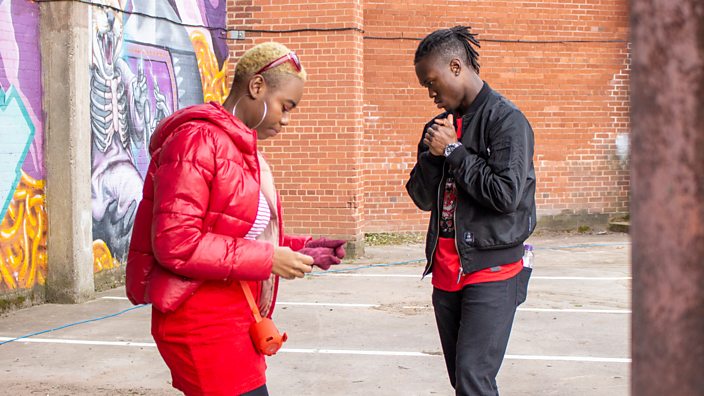 BBC
BBC“I joined the clubs and started doing plays at school and trying to find my friendship group,” Lesia explains. “I went on to study performing arts and then to drama school, but when I left, I thought, ‘do you know what, I really wanna do music’. That was the moment when I graduated, that I thought I’d leave musical theatre and try and do music full on.”
For Zones, she began to rap through a love of writing, which led her sisters to encourage her to try a different art form. “When I was younger, my sisters tried to push me into spoken word, because I love English as well so I’m always writing,” she says. “I didn’t see myself as a rapper or artist, I just wrote how I felt and it came from that.”
She wrote her first rap at 15, soon after losing her mum. Having gained the confidence to open up more from the encouragement she got on The Rap Game UK, she wants to rewrite the song and eventually release it. “I don’t find writing emotional music hard, but I find it hard the thought of other people hearing it,” she admits.
She also reveals that it can be hard to stay focused, because of the environment around her, but found a relatable mentor in Konan, who’s experienced adversity himself – he and Krept have been open about mental health issues and losing a friend to suicide. “Konan mentioned that I shouldn’t take my foot off the pedal. In The Rap Game you’re in a structure, you wake up on time, you’ve gotta do this and that, you’re in a routine.
“I worried that after the show I’d fall into my normal routines, doing things I shouldn’t be doing. [Konan] understood that, and told me to not take my foot off the gas pedal. I don’t wanna pause and end up doing things that move me off the path I’m on right now. Hanging around people I don’t need to be about, being in certain areas I don’t need to be, and letting music slip.”
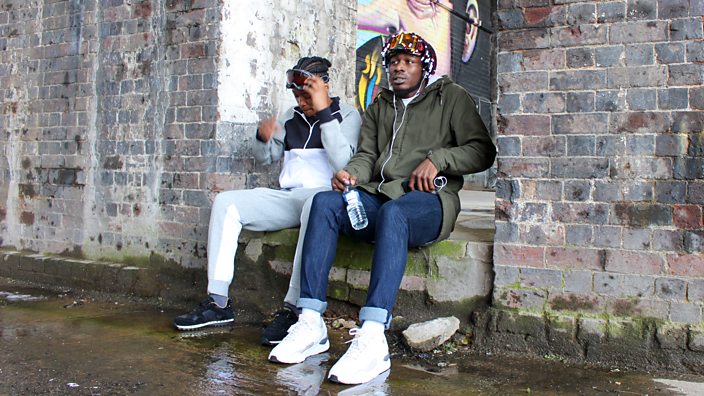 BBC
BBCAs well as dealing with anxieties carried over from her school days, another cause of worry for Lesia was a sense that the camaraderie began to slip when she scored higher in a challenge than some of the other artists.
“I wasn’t sure if everyone was happy with me ranking highly in the house. It felt like everyone was cool when I was averaging, but there were some hard feelings when I was on top,” she remembers.
“Krept and Konan gave me the advice that that’s kind of how it is in the industry, some people might love you, but some people might think someone else deserved it better. They said to take all of that with a pinch of salt and don’t get distracted by outside factors. It’s not something that just happens to me, it happens to all artists.”
On some other artists assuming she was male, Zones says: “It’s not nice, but it’s something I’ve experienced before, I just correct them. It’s not coming from a malicious place, I do look like a tomboy so I just let them know,” she says.
“I feel like I intimidate a lot of boys. Not that I intimidated people in the house, but for example, Lesia, she sings beautifully and raps just as great, she’s probably the more stereotypical idea of a female artist. I just rap. I feel like that intimidates some of the boys, I bar, and I bar better than most of them. When they found out I was a girl, they didn’t know how to act.”
Their struggles may be different, and their sounds worlds apart, but they share the common goal of making their mark on Britain’s rap scene. As for who’ll come away with the coveted record deal, that’s up to Krept, Konan and DJ Target to decide.

